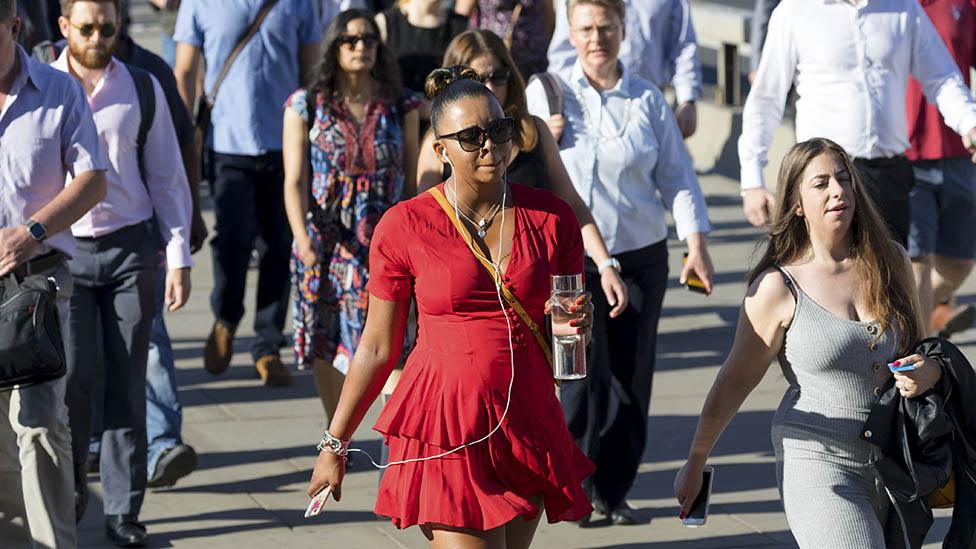UK heatwave: South East hit by rising temperatures
- Published
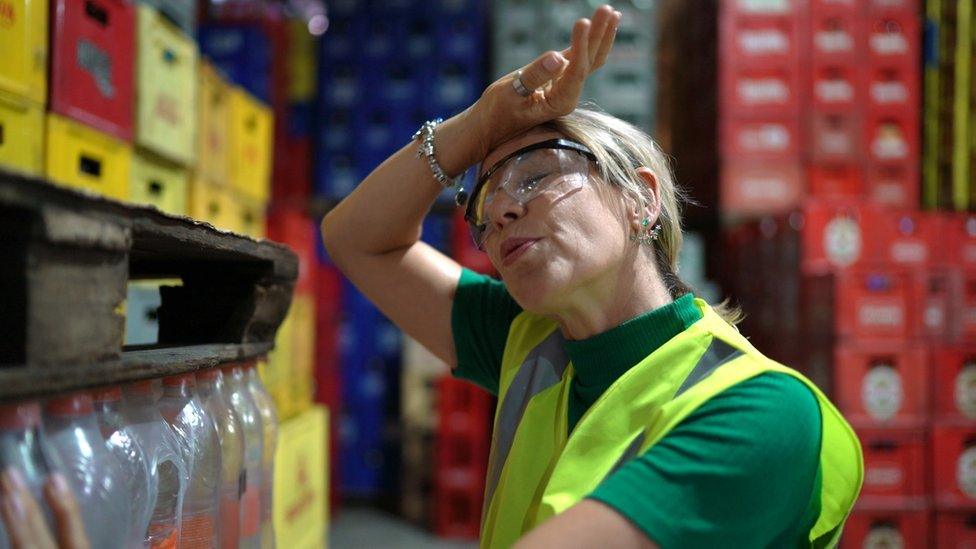
The Met Office issued a red warning due for extreme heat on Monday and Tuesday for an area covering north Kent and parts of Surrey.
It meant "widespread impacts on people and infrastructure" was expected, with "substantial changes in working practices and daily routines" required.
The rest of the South East was covered by an amber warning for hot weather.
By 15:00 BST temperatures peaked in the South East at 37.2C (98.9F) in Wisley, Surrey - the hottest day of the year.
The highest ever temperature in the region was 38.5C in Faversham in 2003.
Some residents in east Kent have been without water or have low pressure, due to increased demand due to the weather.
Watch latest forecast: An even hotter day on Tuesday
South East Water apologised to customers in Challock and Molash who have been without water since Saturday afternoon.
The company said it was "moving water through the network", external but that customers might experience "no water or low water pressure" for the rest of the day.
A spokesman said: "We've continued refilling the local network since this morning, but we don't have enough water in the local area to continue doing this.
A bottled water station was set up for customers, the company said.
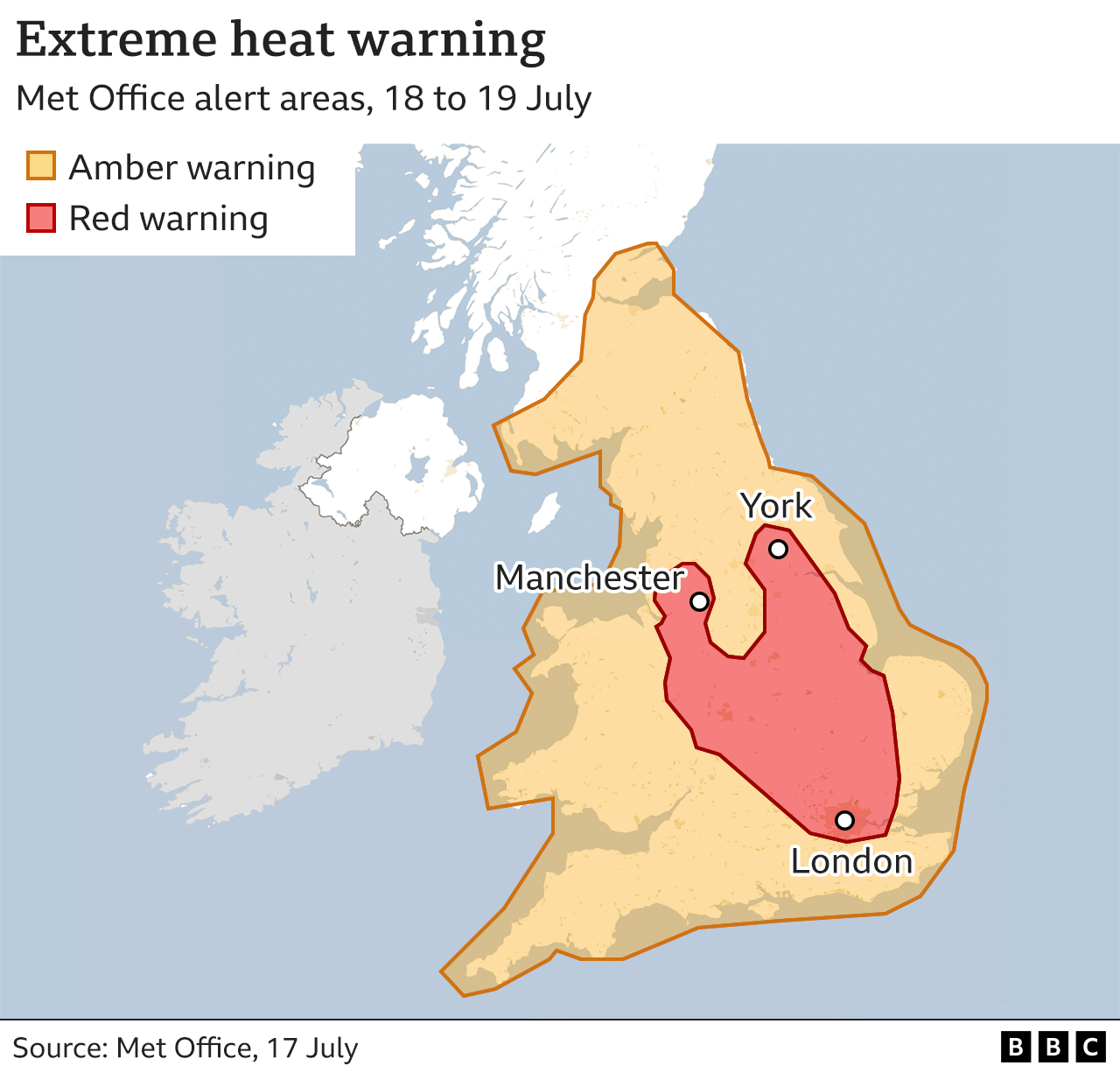
Due to the red weather warning, some schools planned to close early - or not open at all - although the government issued guidance designed to keep them open.
Gillian Lovatt-Smith, head teacher of Shoreham Village School, near Sevenoaks in Kent, said: "A couple of my teachers have got 15-minute timers on so that everyone stops and has a drink.
"We have lovely woodland near the school, so whenever the teachers want to they can take the children there."
James Williams, Medway's public health director, said the effects of high temperatures at night could be "very serious indeed".
He told the BBC: "Heat is a killer and can be very very difficult. Stay in the shade between 11am and 3pm and drink plenty of fluids."
Kent Fire and Rescue Service warned of an increased risk of grassland fires.
A spokesman said: "Crews see more accidental fires started and injuries sustained, especially due to increased barbecues and bonfires - flames from which have the potential to spread wildly across parched grassland."
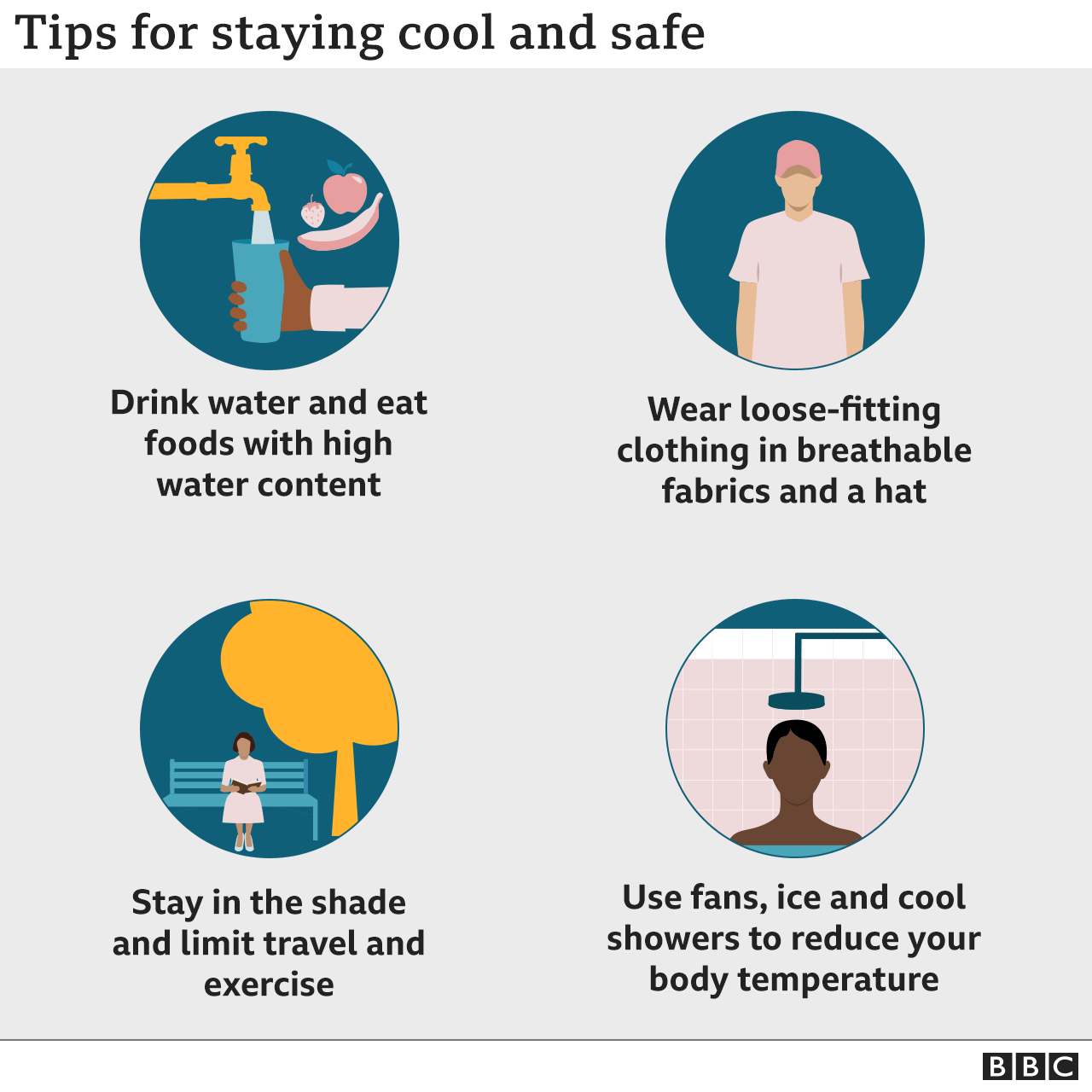
Tony Pierce, a sheep farmer in Camber, East Sussex, said the heatwave was causing big problems for his lambs.
He said: "We need some rain desperately. The lambs will be taken away from their mothers very shortly and they need an extra flush of grass to satisfy their needs."
Network Rail said people should travel only "if absolutely necessary" on Monday and Tuesday.
The RAC advised people to make journeys only if they had to and outside the hottest parts of the day, expected between 11:00 and 15:00 BST.
It warned drivers to keep an eye on their engine temperature, especially in older vehicles.


Keeping dogs cool
As the heat goes up, so does the risk to animals' health. Battersea Dogs and Cats Home's welfare manager Rebecca Verne gave BBC Breakfast some tips to keep your dog cool during a heatwave:
Remember you don't have to walk your dog in the heat - on days like today, focus on mental stimulation rather than physical exercise
Use anything at your disposal - paddling pools, hoses, buckets and cans - to keep your dog cool
Freeze your dog's food by popping it in the freezer- it will cool them down as they eat it
Watch out for signs of heatstroke in dogs: the signs are similar to heatstroke in humans and include symptoms like vomiting, diarrhoea, behavioural changes such as confusion and disorientation. If you spot any of these, call your vet

The hot weather will continue on Tuesday - with overnight temperatures warned to be in the mid 20s.

Follow BBC South East on Facebook, external, on Twitter, external, and on Instagram, external. Send your story ideas to southeasttoday@bbc.co.uk.
Related topics
- Published16 July 2022

- Published16 June 2022
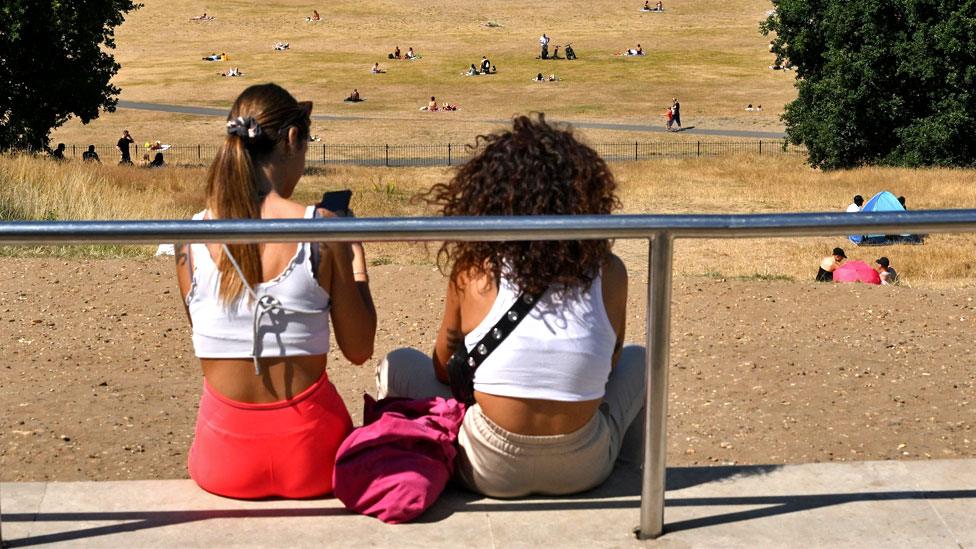
- Published10 August 2022
